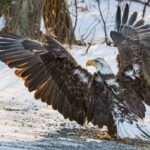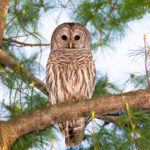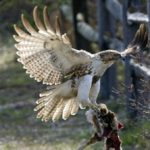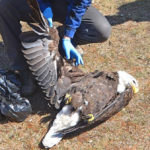
Will Authorities Step Up? Courtesy of the Harvard Animal Law & Policy Clinic A coalition of Massachusetts residents petitioned the Massachusetts Department of Agricultural Resources (MDAR) in May to suspend the registrations of anticoagulant rodenticide products that are killing eagles, owls, and other wild animals throughout the Commonwealth. The petition—prepared by the Harvard Law School Animal Law & Policy Clinic—was submitted on behalf of bird rehabilitators Erin Hutchings, Jodi Swenson, and Linda Amato of Cape Ann Wildlife in Essex; mammal rehabilitator Jane Newhouse of Newhouse Wildlife Rescue in Chelmsford; Marci Cemenska of Save Lexington Wildlife; James Joyce II and Patricia [READ MORE]





